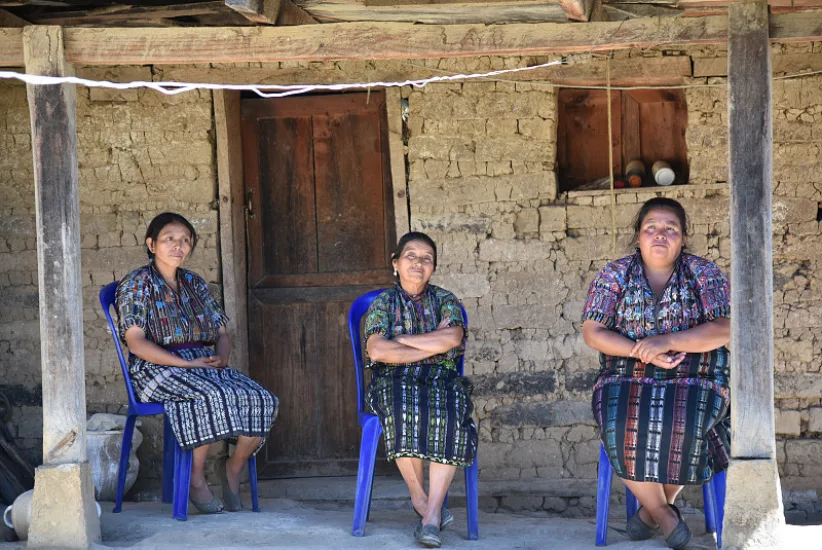Guatemala

The concentration of wealth in Guatemala is extreme. A tiny elite controls both the state and changing governments though the financing of political campaigns, control over the banks that lend money to the state, and the buying of influence. Influence is also brought to bear through the powerful business organisation CACIF. Among other things, this has led to so little tax income that the state has been unable to maintain basic functions. 2% of the population own 70% of the cultivable land in a situation where half of the population still lives in rural areas. The last decade has witnessed extensive privatisation of state enterprises and the granting of enormous concessions to domestic and foreign companies to exploit the country’s natural resources. This has led to new conflicts with local communities, which are in danger of losing the little land they still own.
The peace agreements that were signed in 1996 marked the end of 36 years of civil war and sketched out a plan of reform for Guatemala. Those in power, however, have neglected to implement these reforms, and the authoritarian, feudal social structure remains largely unchanged. Since 2015, the country has been governed through a military/political alliance based on an impunity pact between the army, politicians and the financial elite, all of whom are involved in serious cases of corruption and breaches of human rights. In the autumn of 2019, Alejandro Giammattei won the presidential election. He represents the same elite and is known to be a conservative, authoritarian politician.
Organisations in Guatemala are exposed to great risk, and social leaders continue to be killed. Social organisations have been, and continue to be, crucial to the pursuit of democratisation and reforms, as well as to reaching a settlement in relation to human rights violations and the genocide that took place during the war. Largely speaking, the struggle for fundamental change in Guatemala has been led by peasants’ and indigenous peoples’ organisations.
Programme
Norwegian People’s Aid has been working in Guatemala since 1986 to strengthen the participation of indigenous peoples, women and peasants in decision-making processes at both local and national level. Indigenous peoples’ and peasants’ organisations exercise increasing collaboration in order to protect natural resources such as land, water and minerals, but the authorities are more concerned with facilitating domestic and international companies than the protection of local community interests and sustainable development.
Norwegian People’s Aid supports popular organisation at the local level with a view to building up influence at national level. We help make it possible for organisations to educate their members in a number of areas, including how local authorities and the state function, human rights, and how to increase participation and leadership by women. Norwegian People’s Aid supports partners in their struggle for control over natural resources and land areas, in their demand that the right of consultation be respected, and in relation to stopping concessionary allocation, legislative influence and respect for indigenous peoples’ institutions, values and means of governance.